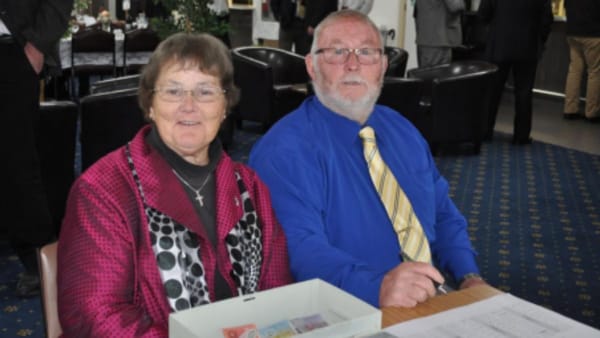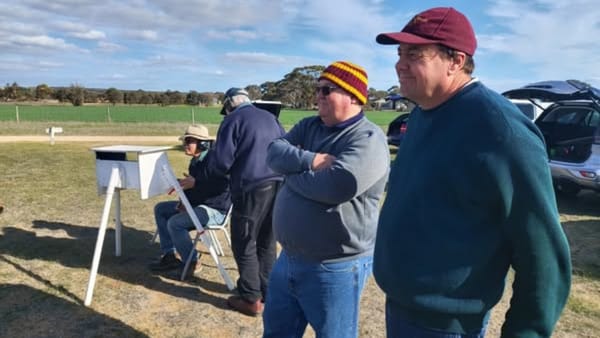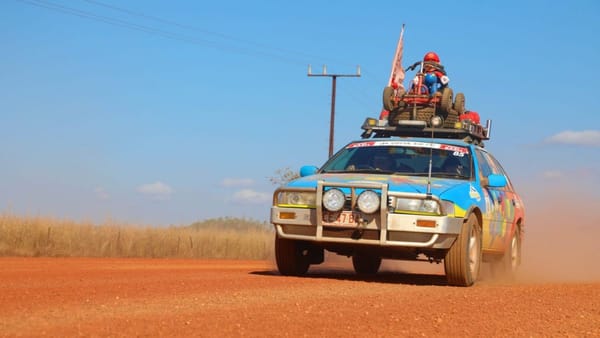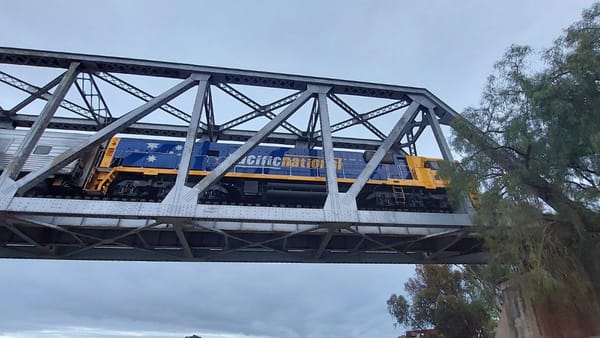Murray Bridge’s mayor is about to retire – now what happens?
Brenton Lewis has confirmed he will step down in November, prompting questions about what should happen after that.

This post was originally published behind Murray Bridge News’ paywall. Paywalled posts are unlocked four weeks after publication. Can’t wait that long? Subscribe here.

Murray Bridge Mayor Brenton Lewis will step down this November after eight years in the role.
He confirmed on Thursday what many locals had long expected, in the face of an ongoing battle with cancer.
Doctors originally gave him only months to live when he was diagnosed more than two years ago.
“I’m lucky to be here,” he said.
“I don’t know if I could look forward to another five years of life, quite frankly.
“You never know, but I can’t commit to filling that (mayoral) role.”
Murray Bridge has been transformed during his two terms in office, as his “proud, safe, progressive” mantra filtered down into many aspects of the council’s work.
It led to the establishment of a town pride committee, which pushed for projects including the Adelaide Road linear park; Murray Bridge Safe, a group which connects community service providers behind the scenes; and the city’s “make it yours” promotional campaign.
His original aim, to change the council’s culture for the better, would appear to have been fulfilled.
It would soon be time to give someone else a turn, he said.
But the coming vacancy in Murray Bridge’s top office has prompted a conversation about how, exactly, Mr Lewis’ successor should be chosen.
Mechanics of council elections need to change, councillor argues
At the moment, would-be civic leaders have to make an all-or-nothing choice at election time: they can either run for mayor, or run as a councillor.
If a candidate loses the mayoral vote, they can’t be a councillor for the next four years, either.
Whatever contribution they might have made is lost to the community.
At the last mayoral election in Murray Bridge, in 2014, the unsuccessful candidates included then-Deputy Mayor Barry Laubsch, ex-MP Patrick Secker and Housing SA executive Wendy Gaborit.
One possible candidate in 2022 – she hasn’t decided yet – said it was a problem that well-credentialed candidates could be pushed out of public life if they lost a mayoral election.

Councillor Airlie Keen made a serious run at election to state parliament last month.
But she said the risk of missing out would be enough to make any candidate think twice about a mayoral bid.
“There could be a number of current elected members who may be interested in running for mayor,” she said.
“It would be a such shame that whoever’s unsuccessful, (the council) would lose their experience.”
Cr Keen said she did not yet know whether she would run in November, or even whether she would look for re-election as a councillor at all.
But she hoped that South Australia’s local government election laws could be changed so that good candidates would not be lost to their communities.
With a new state government elected, and with nominations for local government elections due to open in August, now was the time to act, she said.

What’s the solution to the all-or-nothing problem?
Cr Keen raised the issue at the Murray Bridge council’s meeting on Monday night.
Her suggestion was that votes left over from the mayoral race could somehow “flow down” into the race for regular seats on the council.
In New South Wales, local government regulations allow candidates to run for election as both the mayor and a councillor.
Whoever is elected mayor is then excluded from the council race.
@PeriStrathearn In NSW, candidates can run for Mayor and Councillor, and if elected Mayor, there votes are excluded at the first step of the Council count. NSW uses proportional representation which makes this possible.
— Antony Green - elections (@AntonyGreenElec) 7:25 AM ∙ Apr 16, 2022
South Australia’s electoral laws force candidates to choose one office or the other.
The councillors agreed to write to new Local Government Minster Geoff Brock, asking him to consider changing the election laws in one way or another.
Mr Lewis agreed it was a problem that good community members could be lost to the council if they lost a mayoral election.
It will be interesting to see whether Mr Brock has any appetite for such a reform.
South Australia’s local government election laws have been trending in the other direction lately.
Councils where mayors were chosen from among the other councillors – such as the Coorong – will all be required to switch to a direct election system, like the one used in Murray Bridge, this year.
Any change to the laws would presumably need to pass through state Parliament before the local government electoral roll closes on July 29.





